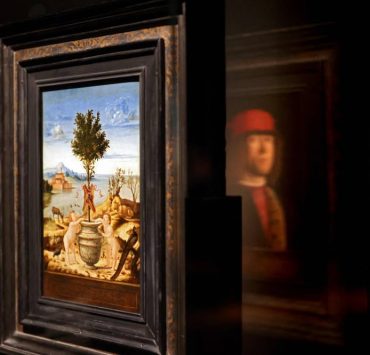In the afterglow of speaking up
I grew up in a household that couldn’t afford cable television so I was stuck watching free channels one will instantly find after pressing the power button. Without many available programs for toddlers, daily newscasts like “TV Patrol” and “24 Oras” became my cartoon shows. Little did I know that this mundane exposure to news and current affairs would eventually lead me to my love for storytelling.
As far as I can remember, I always wanted to be in the realm of journalism. Not necessarily for the passion for public service but because it’s the only escape I knew of to even have the chance to not be perceived as the underdog. It was a contest to be won for a thirsty average student like me who desperately needed validation because I eagerly wanted to know what it felt like to be seen and recognized.
I never excelled in academics. If truth be told, I was only added to our grade level’s star section because our former guidance counselor back in elementary was once a teacher of my sister—the prim, proper, and book-smart lass whom everybody called a walking encyclopedia. I, on the other hand, was her complete opposite, and so I knew that regret would be their initial reaction once they realized they had mistakenly placed a mediocre next to the school’s cream of the crop. That insecurity devoured me, and so speaking up was never really a choice because I knew I wouldn’t be heard from the get-go.Until I finally was.
Last presidential election, I was one of the 10,043 people in Ilocos Norte who went against the “Solid North” majority since I voted for the sole female candidate. During the campaign period, I already had a taste of how cruel people can be when your political choices don’t exactly align with theirs. I was called a traitor and ungrateful by people I don’t know. Even some of my relatives raised eyebrows.
Then came Feb. 24, a regular holiday because of the nationwide commemoration of the 1986 Edsa People Power Revolution—the day when the country’s democracy was finally regained after years of dictatorship. Ironically, it was also the day when I felt the most scared and confined.
That same day was one of the grandest days for us Ilocanos, thanks to our annual provincial-wide festival. During the event, I was interviewed by someone who works for a national news organization—asking about my thoughts on remembering the 1986 revolution. “I think it’s time for us Filipinos, in this setting, as Ilocanos, to have time to reflect on what happened 37 years ago. And now that another Marcos is president again, I think … we should not forget that, and we have to continue to recognize the importance of that because, if not for the people 37 years ago, we might not even have democracy until now,” I replied. My face was stamped on everyone’s social media feed and that seemingly harmless statement led me to my biggest nightmare.
I knew I took an extremely big risk because even my mother was afraid for her only son when the story came out. But I told myself, “No saannak agsao ita, kaanon to pay?” (If I don’t speak now, then when will I ever do?”)
I remember sitting at a restaurant while scrolling through the comments and worrying about my safety. People around me were jokingly telling me not to leave the house because a bullet might hit me.
As an aspiring journalist, those threats made me question whether I was still fit for the job.
Maybe that interview was the universe’s way of giving me an opportunity to be heard—to finally have the chance to be listened to. But it also made me doubt whether I was courageous enough to fit the media industry as a watchdog. Eventually, I came to a solid conclusion—I shouldn’t be insecure just because I get scared for my safety, for a country that values truth and democracy should never be a threat.
That statement changed the entire trajectory of my life. I am now in my third year in college, pursuing a communication degree. Though this program tends to be perceived as broad because it offers a wide variety of careers in different industries, I now know where my heart belongs—to represent those who were once afraid for their lives because of speaking up and to make them feel like our freedom of speech still exists.
Years from now, when all goes well, I want to be the person that a kid will see the next time they press their television’s power button. To let them see me as someone who once was a juvenile who lived through fear for children like them. To let them live and breathe without fear through my testimonies; to let them pick up the pen without shaking, and to hold it against the paper without trembling. I still carry the fear I experienced nine months ago but now I’ve learned to use fear to draw courage from it.
—————-Ryand Ugalde, 21, is a communication student in Ilocos Norte. He aspires to become a broadcast journalist someday.
















